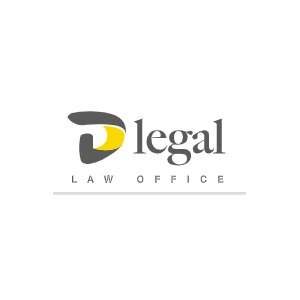Best ESG Advisory & Compliance Lawyers in Canada
Share your needs with us, get contacted by law firms.
Free. Takes 2 min.
Or refine your search by selecting a city:
List of the best lawyers in Canada
About ESG Advisory & Compliance Law in Canada
ESG stands for Environmental, Social, and Governance. ESG Advisory & Compliance law in Canada refers to the legal frameworks, regulations, and best practices that businesses and organizations must follow to ensure their operations are environmentally sustainable, socially responsible, and governed ethically. Canadian law in this fast-growing area is influenced by both local statutes and global standards. Companies are increasingly expected to disclose ESG-related risks and opportunities, implement responsible business practices, and ensure their strategies meet legal and stakeholder requirements.
Why You May Need a Lawyer
The landscape of ESG Advisory & Compliance is complex due to evolving regulations, stakeholder expectations, and potential legal risks. You might consider consulting a lawyer if you encounter any of the following situations:
- Your business faces new or changing ESG reporting requirements.
- You need to conduct due diligence on environmental or social risks in your supply chain.
- You are planning a merger, acquisition, or investment and require ESG risk assessments.
- There are allegations or investigations concerning environmental damage, human rights violations, or governance failures.
- You want to develop or update internal ESG policies and codes of conduct.
- You require guidance on disclosure and transparency obligations under Canadian securities regulations.
- Your organization faces ESG-related litigation or regulatory actions.
- You wish to stay ahead of emerging ESG trends that may impact your business or sector.
Local Laws Overview
Several Canadian federal and provincial laws affect ESG Advisory & Compliance. At the federal level, laws like the Canadian Environmental Protection Act, Clean Energy Regulations, and Modern Slavery Act play significant roles. Provincial legislation, such as Ontario's Environmental Bill of Rights and Quebec's Sustainable Development Act, further regulate specific issues.
ESG compliance is also shaped by Canadian securities regulators who require public companies to disclose material ESG risks and, in some cases, climate-related financial information. The Canadian Securities Administrators (CSA) have issued guidance on ESG disclosures. Companies operating internationally must also ensure their Canadian activities align with global standards, such as those under the United Nations Sustainable Development Goals (SDGs) and the Task Force on Climate-Related Financial Disclosures (TCFD).
Failure to comply with ESG laws and guidelines can lead to regulatory actions, reputational damage, shareholder lawsuits, and loss of business opportunities.
Frequently Asked Questions
What is ESG Advisory & Compliance?
ESG Advisory & Compliance refers to the processes and practices organizations use to ensure legal and ethical management of environmental impacts, social responsibility, and corporate governance.
Are ESG disclosures mandatory in Canada?
Certain ESG disclosures are required for publicly traded companies under Canadian securities laws, particularly concerning material risks. There are growing expectations and requirements around climate-related disclosures.
Which areas does ESG compliance typically cover?
ESG compliance covers environmental issues (like emissions and resource use), social factors (such as labor practices and diversity), and governance matters (including board structure and anti-corruption).
How can a lawyer help my business with ESG?
A lawyer can help by advising on regulatory compliance, ESG risk assessment, drafting or reviewing policies, assisting with disclosures, and representing you in regulatory investigations or disputes.
What penalties can result from ESG non-compliance?
Penalties range from regulatory fines and sanctions to loss of investor confidence, reputational harm, and even civil lawsuits.
Is ESG compliance only relevant for large corporations?
No, ESG compliance is increasingly relevant for businesses of all sizes, especially as supply chains and consumers demand higher standards.
What recent developments have affected ESG law in Canada?
Recent developments include new legislation addressing forced labor and human rights, updated reporting requirements for climate risk, and greater regulatory scrutiny from securities commissions.
What is the role of boards and executives in ESG compliance?
Boards and executives play a key role in setting ESG strategy, overseeing compliance, and ensuring proper disclosure of ESG risks and performance.
Do Canadian laws require companies to address social issues like diversity and inclusion?
Certain regulations, especially those governing public companies and contractors, require reporting and sometimes action on social issues such as diversity and workplace equity.
Are global ESG standards applicable in Canada?
While not always legally binding, Canadian businesses are often expected by investors and stakeholders to align with global ESG frameworks like the TCFD, UN SDGs, and others.
Additional Resources
Individuals and businesses seeking more information or support can consult the following resources:
- Canadian Securities Administrators (CSA) for guidance on ESG disclosures
- Environment and Climate Change Canada for federal environmental regulations and resources
- Provincial environmental departments, such as Ontario’s Ministry of the Environment, Conservation and Parks
- Global Reporting Initiative and the Sustainability Accounting Standards Board for ESG reporting frameworks
- Canadian Centre for Ethics & Corporate Policy for governance best practices
- Non-profit organizations like the Canadian Business for Social Responsibility (CBSR)
Next Steps
If you believe you need legal advice in the area of ESG Advisory & Compliance, start by identifying your main objectives and concerns. Gather any documentation relating to your ESG policies, reporting, or compliance history. Contact a Canadian lawyer or law firm specializing in ESG and compliance matters. During your initial consultation, discuss your situation in detail, ask about their experience in this field, and clarify the next steps for compliance or risk management. Proactive legal advice can help protect your business and enhance your ESG standing.
Lawzana helps you find the best lawyers and law firms in Canada through a curated and pre-screened list of qualified legal professionals. Our platform offers rankings and detailed profiles of attorneys and law firms, allowing you to compare based on practice areas, including ESG Advisory & Compliance, experience, and client feedback.
Each profile includes a description of the firm's areas of practice, client reviews, team members and partners, year of establishment, spoken languages, office locations, contact information, social media presence, and any published articles or resources. Most firms on our platform speak English and are experienced in both local and international legal matters.
Get a quote from top-rated law firms in Canada — quickly, securely, and without unnecessary hassle.
Disclaimer:
The information provided on this page is for general informational purposes only and does not constitute legal advice. While we strive to ensure the accuracy and relevance of the content, legal information may change over time, and interpretations of the law can vary. You should always consult with a qualified legal professional for advice specific to your situation.
We disclaim all liability for actions taken or not taken based on the content of this page. If you believe any information is incorrect or outdated, please contact us, and we will review and update it where appropriate.
Browse esg advisory & compliance law firms by city in Canada
Refine your search by selecting a city.














